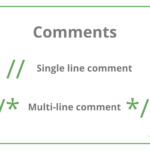Every time you communicate over the Internet, you’re doing so with a certain degree of risk. Services like WhatsApp are only as safe as the security that guards them and the security on your own phone or Internet-capable device.
WhatsApp’s credibility for security and privacy took a significant hit when it was revealed that Israel’s NSO Group has developed spyware that can target individual users on WhatsApp.
Spyware is one of the most dangerous forms of malware when it comes to targeting your phone because it does not actually do anything malicious that you would pick up on immediately, like delete files, infect resources, or transfer to all your contacts via phishing attacks.
What it does do is silently wait and watch, collecting information on what you’re saying, what links you’re visiting, what keystrokes you’re entering when you visit a financial institution or a site like Paypal or Venmo, etc. It records all of this and sends it back to its control center, where hackers decide what to do with the wealth of data being stolen out from under your nose.
If you want to keep your phone and data from being compromised, the first line of defense you will need at all times is a strong antivirus software system such as Malwarebytes. With its constantly updating database and strong filters, it can eliminate a lot of potential problems before they even reach your front door.
Antivirus programs are a great help to your Internet safety, but they cannot do the job alone. These best practices can help you keep your smartphone safe and free of spyware attacks:
Always lock your phone
Putting your phone down at a grocery store, restaurant, bar, or coffee shop for even a moment invites real, in-the-flesh thieves and hackers to snatch it for a moment and either palm it or infect it with a thumb drive full of illegal programs. If your phone is locked with a solid password, or only accessible to your retina, face, or thumbprint, you will keep someone else out of your system for at least as long as it would take you to contact the company and lock the device.
Don’t open emails from strange sources
It’s called phishing and it is the most damaging display of malware in the world today. Hackers will send you emails that look like they are from companies, financial institutions, or people you know. When you open them, they’ll send you to a website that might also emulate something familiar, but it is not. Instead you’ll either be asked to enter valuable information or a tiny bit of code will download onto your computer and dig into your system as spyware, malware, or a virus. Your antivirus software will help tremendously with safeguarding your phone against this sort of practice, but your own diligence will be the real difference maker in whether you are hooked in a phishing attack or not. If you notice a new app or unusual popups on your phone, you are likely already infected with a virus and should run your antivirus software immediately.











